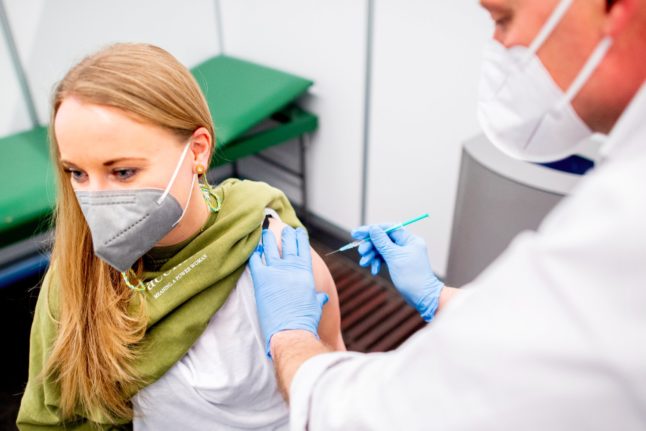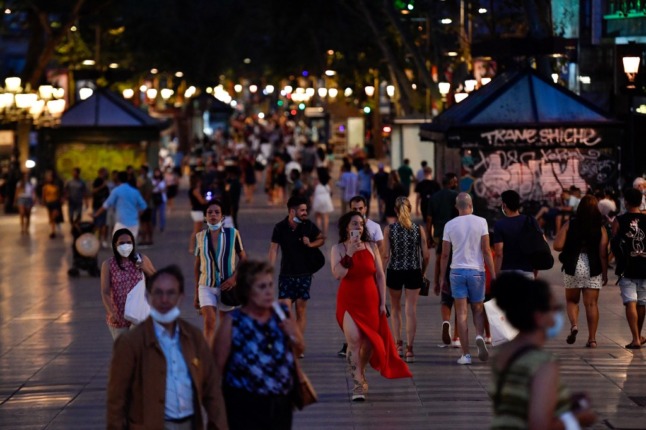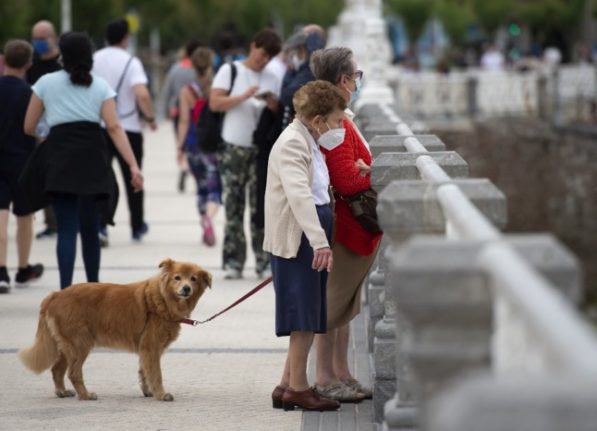As of Friday, around 4.4 percent of the population had received at least one jab against coronavirus. Almost 2 million people have received both doses, and about 3.8 million people have received one jab.
German Health Minister Jens Spahn also said that 11 million coronavirus vaccine doses will have been delivered to the 16 federal states by the end of next week.
So although progress has been made in the inoculation campaign that started at the end of December, impatience is growing over Germany’s slow rollout of the vaccine.
Here are some of the challenges that the country is facing right now.
Supply problems
It’s been well documented that many European countries have struggled with supplies, and this has been blamed on the EU’s purchasing strategy. Critics say the Commission signed its contracts too late and paid the pharma firms too little money.
Adding to the supply issues is that the main vaccine providers – BioNTech, Moderna and AstraZeneca – all failed to deliver the agreed amount of doses for the first quarter of the year.
Health Minister Spahn said recently that the vaccination campaign would not speed up until the second quarter, from April onwards, when more doses are delivered.
READ ALSO: How can Germany increase its supply of vaccines?
People refusing AstraZeneca
In the past week, The Local and other media outlets have been reporting how Germany is struggling to give out the AstraZeneca vaccine.
According to the Robert Koch Institute (RKI), only around 270,000 shots have been administered from the first delivery of around 1.5 million doses.
There have been several reports of people refusing the AstraZeneca jab – saying they would prefer the BioNTech/Pfizer or Moderna jab, which are also approved in Germany.
Citing a lack of data about efficacy in the elderly, Germany’s vaccine commission said AstraZeneca was recommended only for people aged 18 to 64 years old.
But there has also been misleading coverage in the media about the jab. Business paper Handelsblatt and Bild daily had reported that efficacy among above-65s was below 10 percent – claims that were rejected by the German government and the company.
READ ALSO: ‘Millions could be vaccinated quickly’: Should Germany grant wider rollout of AstraZeneca
People are also reacting to studies that show the AstraZeneca vaccine is slightly less effective than the other two vaccines approved in Germany, as well as reports of side effects after receiving the jab. However, health officials say effects, such as feeling unwell, can be expected after all vaccinations.
The government is trying to address these problems by assuring those aged 18-64 who qualify for it that AstraZeneca is safe and effective.
Chancellor Angela Merkel’s spokesman Steffen Seibert tweeted on Monday to say the AstraZeneca vaccine is “safe and highly effective”.
“It prevents many infections and protects against serious illness,” he said. “Vaccination can save lives.”
Adding to the misleading coverage are foreign media headlines that say Merkel “refused” the AstraZeneca vaccine.
In an interview with German daily FAZ this week, Merkel had said AstraZeneca was a “reliable vaccine, effective and safe”, approved by the European Medicines Agency and “recommended in Germany up to the age of 65”.
When asked whether she would accept the jab herself, the German Chancellor, who is 66-years-old, said she did not belong to the recommended age group for AstraZeneca.
This led to several headlines on English language newspapers worldwide saying Merkel refused the AstraZeneca vaccine.
As commentators pointed out, Merkel does not qualify for AstraZeneca because of her age – this is not the same as refusing it.
Since I've seen quite a few people accuse Merkel of undermining vaccination efforts because she said she won't get the AstraZeneca vaccine: That's not how it works. The vaccine isn't approved for people in her age group so she couldn't get it even if she wanted to
— Marcel Dirsus (@marceldirsus) February 26, 2021
Vaccine not being rolled out efficiently
As we said earlier, Germany is struggling with supply issues. So even if some people do not want the AstraZeneca vaccine, that still doesn’t explain why there are so many doses hanging around.
The whole debacle is exasperated by organisational problems and the fact not all priority groups are allowed to book appointments yet.
Due to what appeared to be a lack of leadership on moving away from strict rules, health officials remained focused on the highest priority group which includes over 80s and health care employees with a high risk of contracting Covid-19.
“We should release the AstraZeneca vaccine for the first three priority groups,” Social Democrat health expert Karl Lauterbach told Spiegel on Monday.
However, the country is beginning to open up the AstraZeneca doses to other priority groups (remember that only under 65s qualify for it in Germany), including school teachers.
Spahn on Friday also said that to speed up the rollout, Germany will aim to quickly distribute the shots through its network of family doctors’ practices.
Earlier this month, Chancellor Merkel admitted that the sluggish start of the vaccine campaign has been a “disappointment” and added that the vaccination centres will soon operate “at full capacity”. Let’s hope so.
READ ALSO: ‘Take AstraZeneca now’: Health officials plead for people to take vaccine
Different procedures across the country
Many people across Germany have reported confusion and stress over trying to get a vaccine appointment. The system differs from state to state. Some areas, like Berlin, are sending letters out to people eligible for appointments. Other regions say that people who qualify for a jab should call up or book an appointment online.
There is also no plan that’s been made public on how the mass rollout will work. The German government has said it will update the public on how people will be able to get a vaccine appointment in due course.
But many people, including readers of The Local, are looking for an idea of the plan now to see how vaccinations will be carried out when the rollout speeds up from April onwards.
Vaccine hesitancy
Polls suggest that more Germans could be losing confidence in vaccines.
Health experts say more public health information campaigns on the vaccines should be rolled out to increase trust.
The weekend effect
Many vaccination points in Germany do not open, or are partially opened at the weekend. Social Democrat health expert Karl Lauterbach said lots of centres only vaccinate five days a week for eight hours at a time.
Lauterbach, among others, has urged Germany to open up the AstraZeneca vaccine to all priority groups and “increase the utilisation of vaccine centres to seven days a week”.




 Please whitelist us to continue reading.
Please whitelist us to continue reading.
Member comments